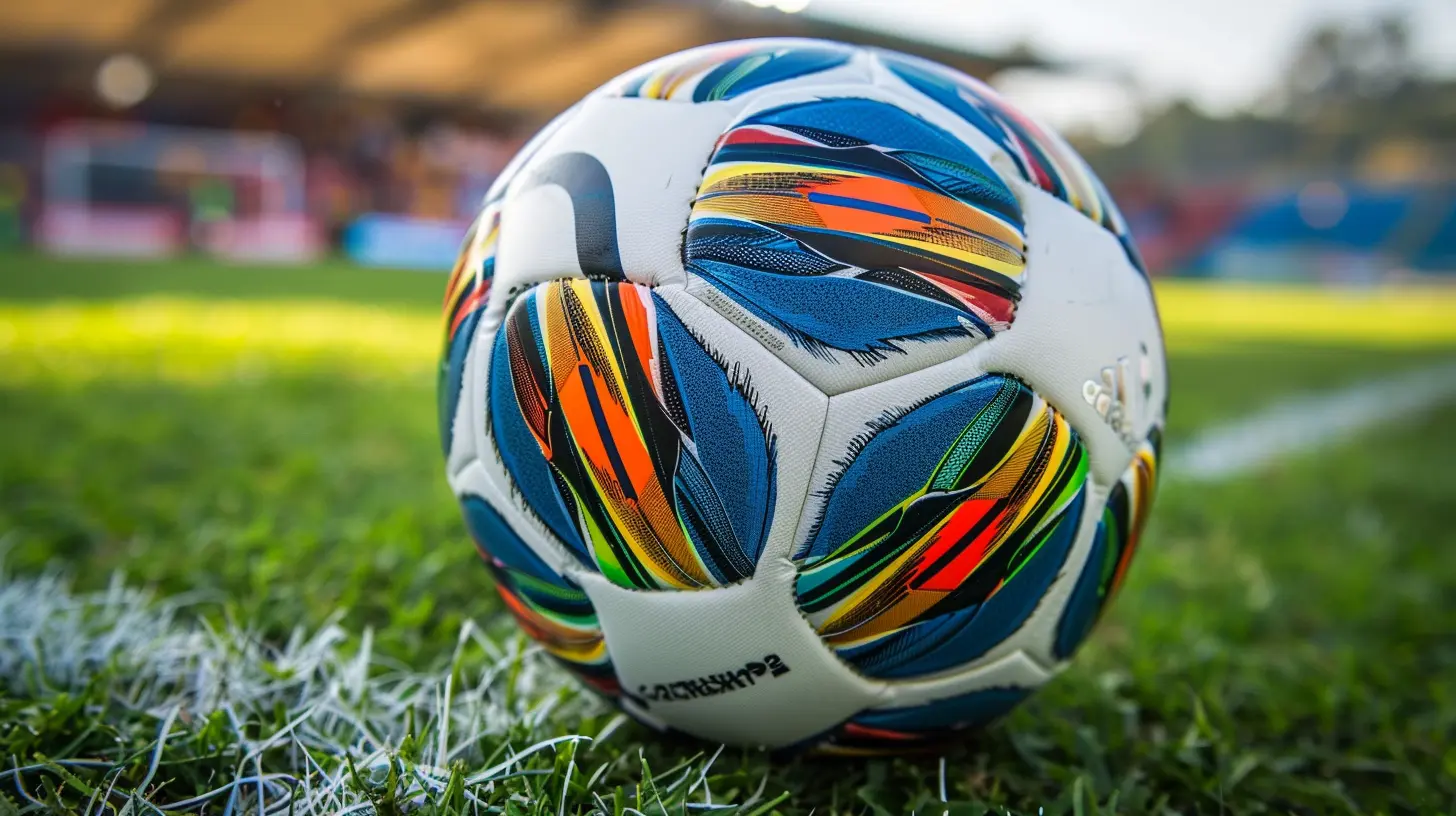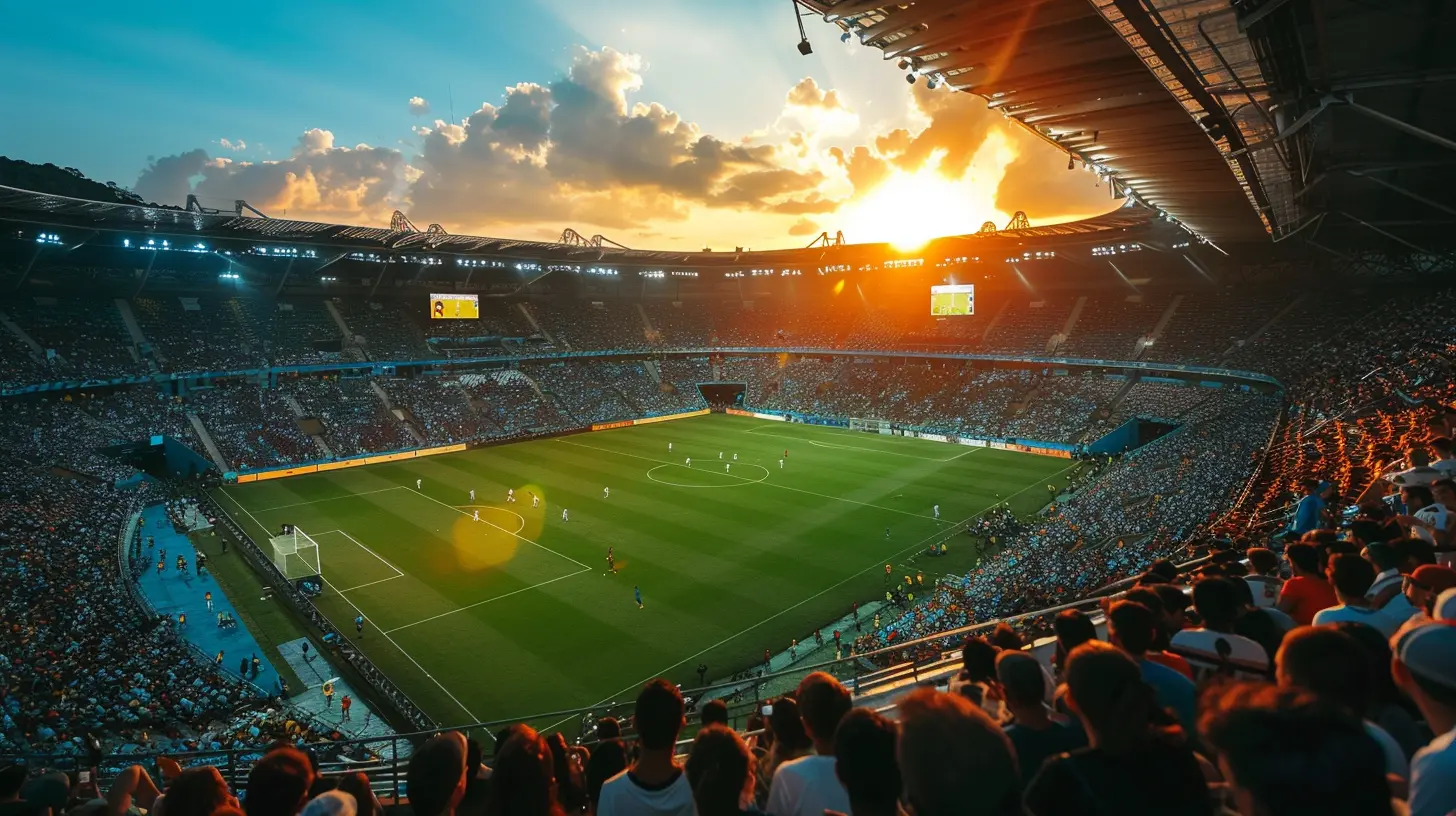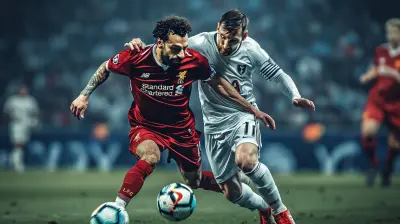How Sponsorship Deals Are Reshaping Football Economics
31 May 2025
Football isn’t just a sport—it’s a billion-dollar industry, a global phenomenon that brings fans together while sending cash registers into overdrive. And if you’ve ever wondered, "How the heck does my favorite club afford those outrageous wages and jaw-dropping transfer fees?", the answer is simple: sponsorship deals.
Yep, those flashy logos on jerseys, stadium names that sound more like corporations than fortresses, and even those questionable noodle partners—sponsorships are cash cows, and they’re reshaping football’s financial landscape in ways we never imagined.

The Evolution of Football Sponsorship
Gone are the days when sponsorship meant a local bakery slapping its name on a team’s warm-up jackets. Sponsorship in football has evolved into a financial powerhouse that fuels clubs, leagues, and even grassroots-level projects.- The Early Days: Back in the ‘70s and ‘80s, sponsorships were simple. Brands wanted visibility, and football clubs wanted funds. Win-win.
- The 2000s Boom: With global broadcasting rights exploding, sponsorships became more aggressive. Clubs started selling every inch of real estate—shirt sponsors, sleeve sponsors, and even training ground partners.
- Today’s Corporate Takeover: Now, it’s a whole new ball game. Sponsorship deals don’t just fund teams; they dictate transfer strategies, player wages, and global expansion plans.

Money Talks: How Sponsorship Deals Are Driving Revenue
Let’s talk numbers—because money makes the football world go round.1. Jersey Sponsorships: The Goldmine of Football
Ever noticed how football jerseys have evolved from plain cotton tees to walking billboards? That’s because sponsorship money is too good to ignore.- Manchester United & TeamViewer: A whopping £235 million deal over five years.
- Real Madrid & Emirates: That “Fly Emirates” logo? Worth around €70 million per year.
- Barcelona & Spotify: A groundbreaking deal estimated at €280 million over four years.
Jersey deals aren’t just about slapping a logo on a shirt. These brands get exclusive marketing rights, VIP experiences, and global exposure through club-driven content. For clubs? It’s cold, hard cash—vital for wage bills and blockbuster transfers.
2. Stadium Naming Rights: Selling a Club’s Soul?
Remember when stadiums had legendary names? Now, thanks to sponsorship, it’s all about corporate branding.- Manchester City: Etihad Stadium – Part of a mega sponsorship deal tied to their owners.
- Bayern Munich: Allianz Arena – Allianz didn’t just sponsor the stadium; they helped build it.
- Arsenal: Emirates Stadium – Their deal was worth £100 million+ over multiple years.
For clubs, it’s a no-brainer. Selling naming rights brings in instant cash—money that can be invested in signings, infrastructure, or clearing debts. But for fans? It’s a touchy subject. Changing a historic name for corporate branding can feel like selling out.
3. Sleeve Sponsorships & Training Kits: Every Inch Counts
Football clubs have become masters of monetization. If they can slap a logo on it, they will.- Sleeve sponsorships? ✅
- Training kit partnerships? ✅
- Even warm-up gear sponsorships? ✅
Clubs realized that even smaller branding spaces bring in millions. That’s why today, you’ll see brands like Noon.com on Manchester City’s sleeves or Rwanda’s "Visit Rwanda" campaign on Arsenal’s kits.
4. Cryptocurrency & Betting Companies: The New Players in Town
If you’ve been paying attention, you’ve probably seen an increasing number of crypto exchanges and betting platforms sponsoring football.- Chelsea & WhaleFin (Crypto Exchange): A £20 million-a-year deal.
- Manchester City & OKX (Crypto Firm): A partnership promoting blockchain technology.
- West Ham & Betway (Betting): A long-term deal worth hundreds of millions.
Football clubs are cashing in, but these sponsorships come with risks. Crypto is volatile, and betting companies often face ethical scrutiny. Nevertheless, the appeal of quick, high-value sponsorship money is too tempting to resist.

The Influence of Sponsorship on Transfer Market & Player Wages
Here’s a crazy thought—sponsorship deals don’t just pay for fancy billboards; they influence who gets signed and how much players earn.Think about Paris Saint-Germain (PSG). Their "Visit Qatar" sponsorship deal injected millions into the club. Suddenly, they could afford astronomical wages for players like Neymar, Messi, and Mbappe.
Manchester City? Their sponsors, many linked to their owners, fuel their war chest—allowing them to spend big without breaking Financial Fair Play (FFP) rules.
Without mega sponsorship deals, most clubs would struggle to compete financially. The balance of power in football isn’t just about tradition or history anymore—it’s about who has the biggest commercial partners backing them.

Are Sponsorships Making Football Less Competitive?
As money floods football, the gap between rich and poor clubs widens. Sponsorships allow a handful of elite clubs to dominate, while smaller teams struggle to keep up.- The "Rich Get Richer" Problem: Manchester City, PSG, and Real Madrid have endless sponsorship-backed funds.
- Smaller Clubs Can’t Compete: Teams without global sponsors rely on TV rights and matchday revenue, which isn’t enough.
- Financial Fair Play Loopholes: Some clubs use sponsorships as a way to bypass FFP rules—getting inflated deals from “friendly” companies.
This makes football less competitive because money directly influences success. The dream of an underdog winning the league? Becoming increasingly rare.
The Future of Sponsorship in Football
So, where do we go from here? Sponsorship in football will only get bigger, bolder, and, let’s be honest—more bizarre.- Tech Giants Taking Over: Amazon, Apple, and Google could step in with massive sponsorships.
- Virtual & Metaverse Partnerships: Clubs are already exploring VR sponsorships, NFTs, and digital stadium rights.
- More Controversial Sponsors: Betting, crypto, and even state-backed sponsorship deals will continue to ignite debates.
Football is evolving into a commercial spectacle, and sponsors are at the heart of it all.
Final Thoughts
Football as we once knew it is long gone. Sponsorship deals now shape the game as much as tactics, transfers, or talent. Whether it’s jersey deals, stadium naming rights, or crypto partnerships, money is flooding in—and with it, a new era of football economics.The real question is: At what cost?
Is football still a sport driven by passion, or is it just another business where brands and money run the show? One thing’s for sure—sponsorships aren’t going anywhere anytime soon.
all images in this post were generated using AI tools
Category:
FootballAuthor:

Onyx Frye
Discussion
rate this article
3 comments
Wilder Klein
This article provides an insightful look at the evolving landscape of football economics through sponsorship deals. It highlights how financial backing shapes team strategies and competition levels. While it’s exciting to see investment, we must also consider the impact on the sport’s integrity and accessibility for smaller clubs.
June 10, 2025 at 3:48 AM

Onyx Frye
Thank you for your thoughtful comment! I agree that while sponsorship deals bring significant investment to the sport, it's crucial to balance this with integrity and accessibility for all clubs.
Lorna Sheppard
Great insights on the evolving landscape of football economics!
June 3, 2025 at 3:32 AM

Onyx Frye
Thank you! I'm glad you found the insights valuable.
Kestrel Kirk
This article provides a compelling analysis of the intricate relationship between sponsorship deals and football economics. It's fascinating to see how these partnerships are not only transforming clubs’ financial landscapes but also influencing player dynamics and fan engagement. I look forward to seeing how this evolution unfolds in the coming years.
June 1, 2025 at 7:51 PM

Onyx Frye
Thank you for your insightful comment! I appreciate your engagement with the article and share your excitement about the future of football economics.



